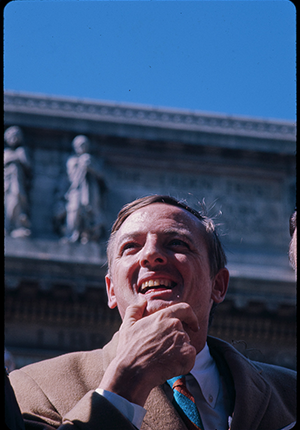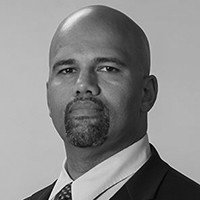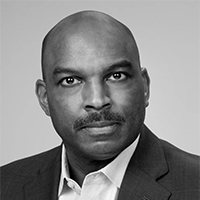Historic Document
Up from Liberalism (1959)
William F. Buckley, Jr. | 1959

Library of Congress, Prints and Photographs Division, photograph by Bernard Gotfryd
Summary
William F. Buckley, Jr. (1925-2008) is best known for founding the conservative National Review and his public affairs television show, Firing Line. Buckley’s writings and commentary proved a uniting counter to the rise of neo-Marxism and the political Left throughout the latter twentieth century. His take on “liberalism” and concerns about it provide a solid look into the perspective that made him the man who many regarded as the intellectual father of modern conservatism. His fusion of traditionalist conservatism and classical liberalism cut a path for a rightward turn in the Republican Party, as Barry Goldwater’s 1964 presidential campaign and subsequent “Reagan Revolution” of the 1980s demonstrated.
Selected by

Christopher Brooks
Professor of History, East Stroudsburg University

Kenneth Mack
Lawrence D. Biele Professor of Law, Harvard Law School
Document Excerpt
A reviewer of my most recent book charged that it is clear from my use of the word ‘Liberal’ that I could only have in mind the clientele of the Nation Magazine. I am encouraged that the reviewer, writing for a prominent Liberal daily, tacitly conceded that the Nation-reader has recognizable spots, a concession that is very late coming. I detect discomfort, here and there, when the word “Liberal" is bandied about. Many people are not satisfied to be unique merely in the eyes of God, and spend considerable time in flight from any orthodoxy. Some make a profession of it, and end up . . . with an intellectual career that might have painted a Jackson Pollock. But even discounting that grouping, an increasing number of persons are visibly discomfited by the appellation ‘Liberal,’ and it can only be because there is in fact perceptible, even though the proper prisms for viewing it have not been ground, a Liberal virus—and a corresponding Liberal syndrome; things, surely, that should be written about.
The Liberals I shall refer to in this book are men and women who are clearly associated with the Liberal movement in America, however often they seem to be deviating to right or left from the mainstream. Because Liberalism has no definitive manifesto, one cannot say, prepared to back up the statement with unimpeachable authority, that such-and-such a man or measure is “Liberal.” But one can say that Mrs. Roosevelt is a Liberal, and do so confident that no one will contradict him. . . . [Liberal] men and women and institutions share premises and attitudes, show common reactions, enthusiasms and aversions, and display an empirical solidarity in thought and action, on the strength of which society has come to know them as ‘Liberals.’ They are men and women who tend to believe that the human being is perfectible and social progress predictable, and that the instrument for effecting the two is reason; that truths are transitory and empirically determined; that equality is desirable and attainable through the action of state power; that social and individual differences, if they are not rational, are objectionable, and should be scientifically eliminated; that all peoples and societies should strive or organize themselves upon a rationalist paradigm.
. . .
The Liberal’s mania is their ideology. Deal lightly with a precept of knight-errantry, and you might find, as so many innocent Spaniards did, the Terror of La Mancha hurtling toward you. Cross a Liberal on duty, and he becomes a man of hurtling irrationality.
. . .
I offer . . . a small cluster of illustrations, all but one in some way turning on the controversy surrounding Senator McCarthy. . . . Whatever Senator McCarthy did, he brought Liberalism to a boil. Everything he did that was good, everything that he did that was bad, added together, does not have the residual sociological significance for our time of what his enemies were revealed as seeing fit to do in opposing him. Let us concede that if ever a man in America crossed Liberal ideology, . . . McCarthy did, which is why the McCarthy years are a cornucopia for the sociologist search for a Middletown on American Liberalism, and for the psychiatrist looking for what I have called this syndrome.




